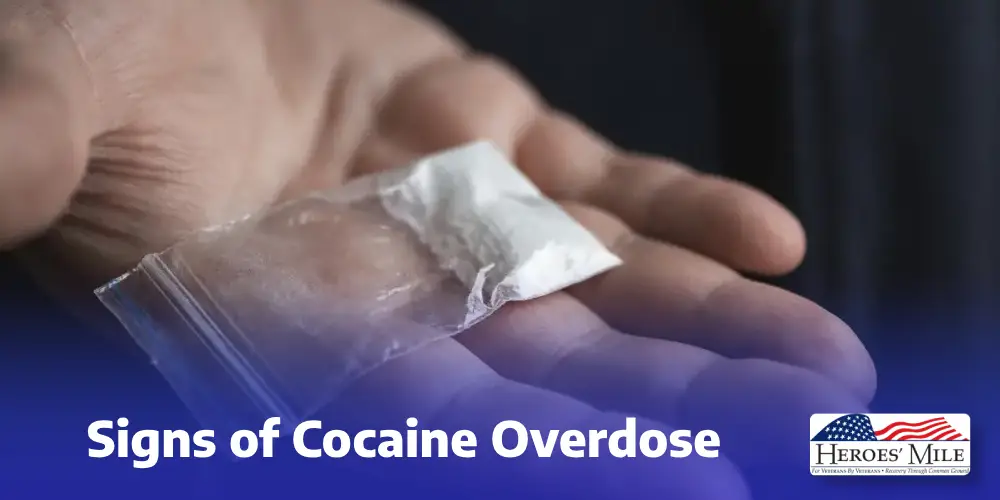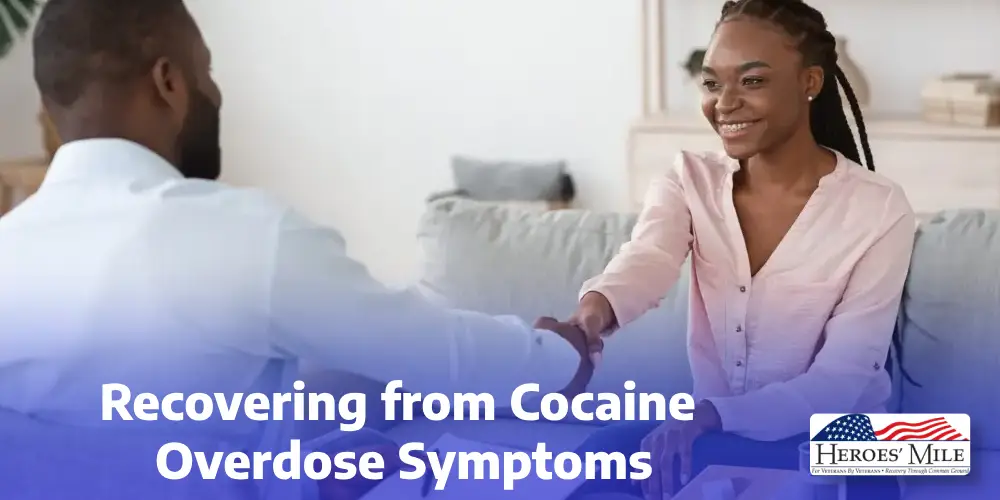Cocaine overdoses are on the rise in Florida. In fact, research shows that one in five fatal overdoses are related to cocaine use. Thus, it’s important to recognize cocaine overdose symptoms so that you can get help before it is too late. Today, we will take a look at cocaine overdose symptoms as well as treatment options for cocaine addiction so that you do not have to put your life at risk for this dangerous substance.
Cocaine Facts to Know
According to reports from the National Institute on Drug Abuse, one of the main types of drugs that individuals need substance abuse treatment for is cocaine. Unfortunately, the rate of cocaine overdoses are on the rise. In fact, over 16,000 people died from overdosing on cocaine in just one year. This means that people who struggle with an addiction to cocaine, particularly individual who are susceptible to this type of substance abuse, are at a high risk of dying because of cocaine use.
With this being said, there are some important cocaine facts that you should know in order to best protect yourself from the dangers of this substance. To begin, there are different names for cocaine. Some examples of these names would be:
- Coke
- Rock
- Blow
- White dragon
- Crack
Cocaine can be snorted, smoked, injected, or consumed in other methods. All methods of using cocaine can put you at risk for an overdose because of the side effects that come with it. Though cocaine was once produced legally as a type of pain control, cocaine is now illegal in the United States, but it is commonly purchased through illicit means.
Because of its pain relieving tendencies, people who have injuries or chronic pain often use cocaine as an unhealthy way to deal with pain. This means that individuals who have service injuries also often turn to cocaine to relieve pain. Of course, the consequence of this is addiction and the possibility of causing an overdose.
Another fact to know is where cocaine falls within the drug class categories. The cocaine drug class, according to the Drug Enforcement Administration, is a Schedule II drug. This means that it is one of the most addictive substances out of all illicit drugs. Other Schedule II drugs include morphine, codeine, and narcotics like fentanyl, which are proven to be deadly. Schedule I drugs are most likely to be abused and cocaine, being Schedule II, follows closely behind those highly addictive substances.
Lastly, one final fact to know is that when users smoke or ingest cocaine, the high that comes after usually only lasts for approximately 15 to 30 minutes. But cocaine can remain in the body and be detected in the blood, hair, spit, and urine for days or even months after taking it. And the cocaine high might not last very long, but the side effects can easily cause short- and long-term concerns—including cocaine overdose.
Signs of Cocaine Overdose

Signs of Cocaine Overdose
Cocaine overdose symptoms can be both physical and mental. On the mental health side of things, the signs of cocaine overdose can include having anxiety, feelings of hopelessness, and experiencing hallucinations. For people who have preexisting mental health conditions such as depression or PTSD, these mental health side effects of cocaine overdose can be even more extreme.
Individuals who struggle with substance use frequently have mental health conditions on top of the addiction to drugs or alcohol. So, the chances of Individuals experiencing worsening mental health symptoms when using drugs like cocaine are very likely. If you have recently used cocaine and start seeing or hearing things that aren’t really there or if you begin to feel sensations of panic, you might be having an overdose.
Other signs of cocaine overdose are physical and can be just as serious as the mental health side effects. Physical symptoms of cocaine overdose include:
- Raised body temperature
- Profuse sweating
- Rapid heart rate
- Difficulty breathing
- Seizures
- Heart attack
- Loss of consciousness
- Death
If you have any of these symptoms, seek medical attention immediately. Each minute that passes as you are having an overdose brings more and more risk for death. Also, there is no guarantee that even if you receive medical attention, you will be safe. The only true way to protect yourself from cocaine overdose symptoms would be to seek addiction help.
Recovering from Cocaine Overdose Symptoms

Recovering from Cocaine Overdose Symptoms
The recovery time from a cocaine overdose is tricky because the side effects can continue long past the actual overdose. Things like lasting mental health symptoms, heart problems, and even future strokes are possible after having an overdose.
However, recovery from cocaine overdose symptoms can begin before you even experience the overdose to protect you from all of the risks. Treatment centers around Florida are prepared to help Individuals heal from addiction before an overdose happens. In cases where addiction and mental health both need to be addressed, specialized rehabilitation facilities can help with recovery through particular intervention methods that include:
- Individualized therapy
- Group sessions
- Art therapy
- Eye movement desensitization and reprocessing (EMDR) therapy
- Cognitive behavioral therapy (CBT)
Other aspects of treatment that are helpful for Individuals involve having access to safe, supervised detox from cocaine and other substances. Plus, treatment should prepare Individuals for life after rehab with services such as nutritional education, job-ready preparation, and community resources for life-long recovery. All of these elements combine to help Individuals decrease the chances for overdosing on cocaine or other risky substances.
Video
How Opioids, Overdoses, and Breathing Are Connected, Christopher Wyatt, PhD – TED Talk
What happens inside your brain when it comes to breathing? This is the question Christopher has spent years researching. By starting with the brain’s role in breathing, he uses this talk to give listeners a new insight into how opioids work. Opioids are powerful drugs that, when used properly under medical supervision, can work wonders for those suffering from constant, intractable pain. When used recreationally or outside of sound medical controls, the scourges of addiction and overdose are high. Christopher explains the how’s and why’s of both sides of opioids and the brain, in a talk that makes the science accessible to all
News Audio
Stimulant users caught up in fatal ‘fourth wave’ of opioid epidemic – NPR
In Pawtucket, R.I., near a storefront advertising “free” cell phones, J.R. sat in an empty back stairwell and showed a reporter how he tries to avoid overdosing when he smokes crack cocaine.
FAQ
- What are the most common symptoms of a cocaine overdose?
Cocaine overdose symptoms include chest pain, rapid heart rate, seizures, extreme anxiety, confusion, and difficulty breathing. Severe cases may involve heart attacks or strokes. - How quickly do cocaine overdose symptoms appear?
Symptoms can appear within minutes of using cocaine, especially if taken in large amounts. The onset depends on the method of use, with smoking or injecting producing faster effects. - What should I do if someone shows signs of a cocaine overdose?
Call 911 immediately, keep the person calm, and avoid leaving them alone. Providing information about the amount and type of cocaine used can help emergency responders provide better care. - Can a cocaine overdose be fatal?
Yes, a cocaine overdose can be life-threatening, especially if it leads to heart attacks, strokes, or respiratory failure. Rapid medical intervention is crucial to improve survival chances. - How can treatment programs help prevent cocaine overdoses?
Rehabilitation programs offer medical detox, counseling, and relapse prevention strategies to help individuals overcome cocaine addiction and reduce the risk of future overdoses.
